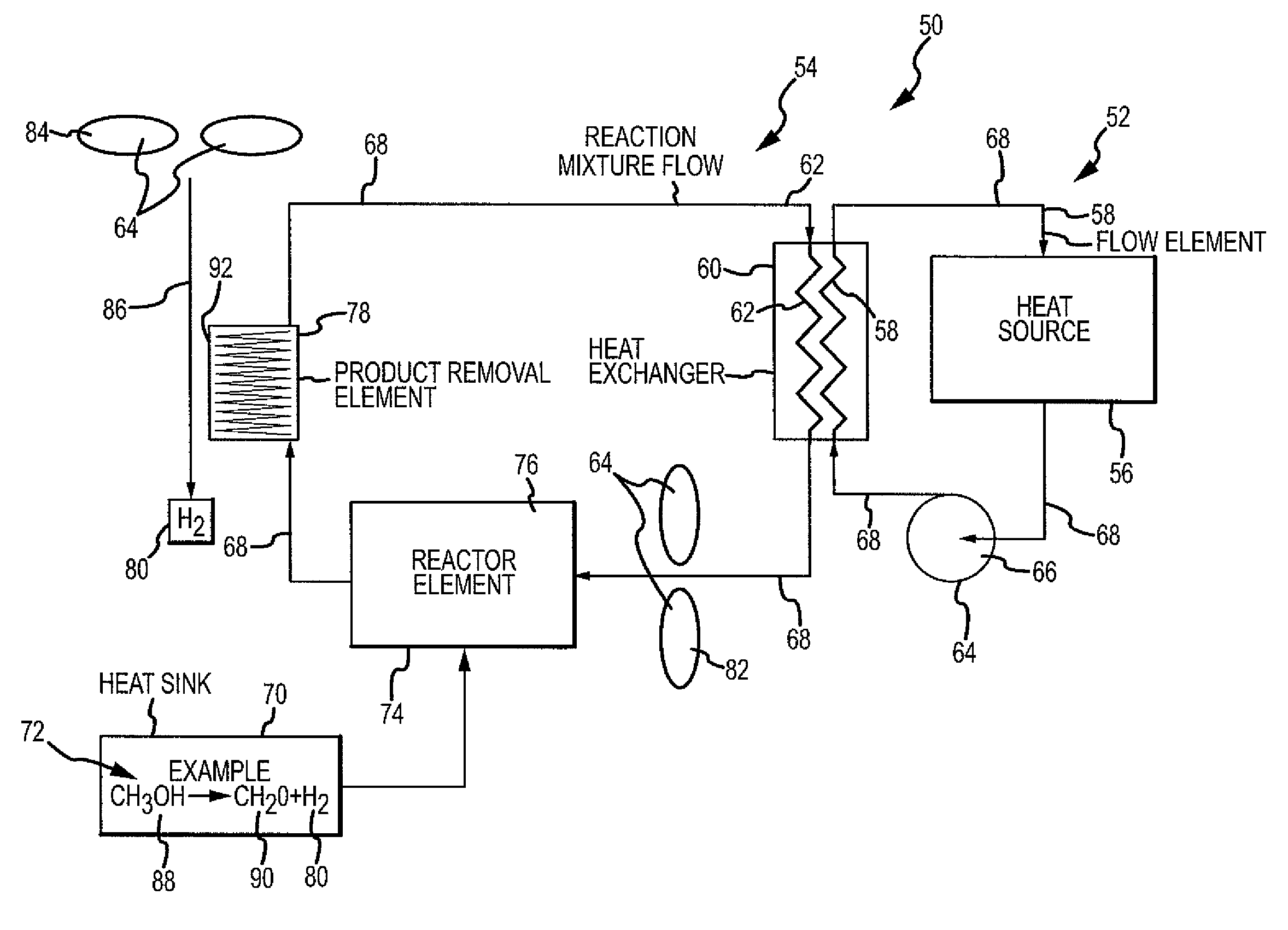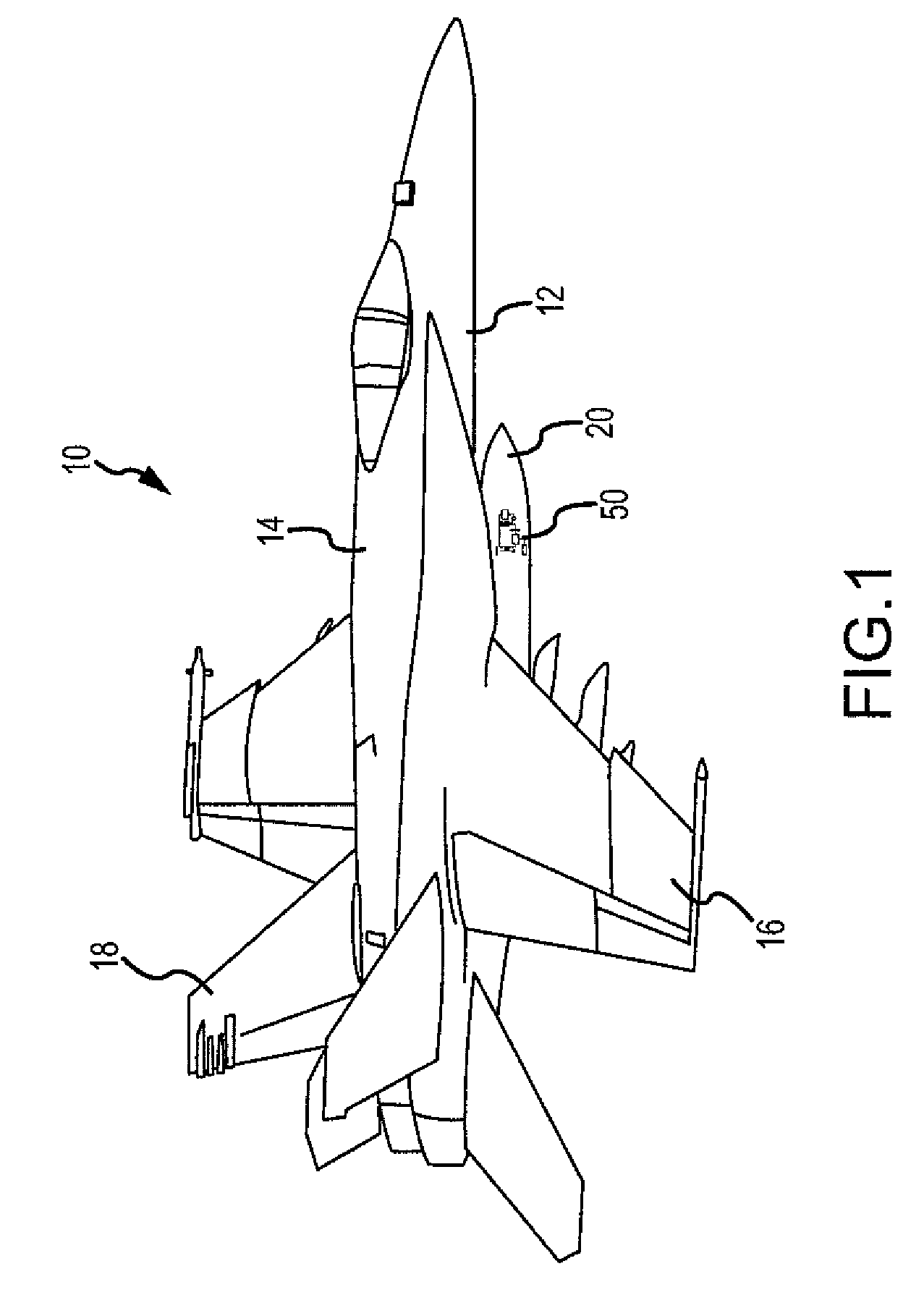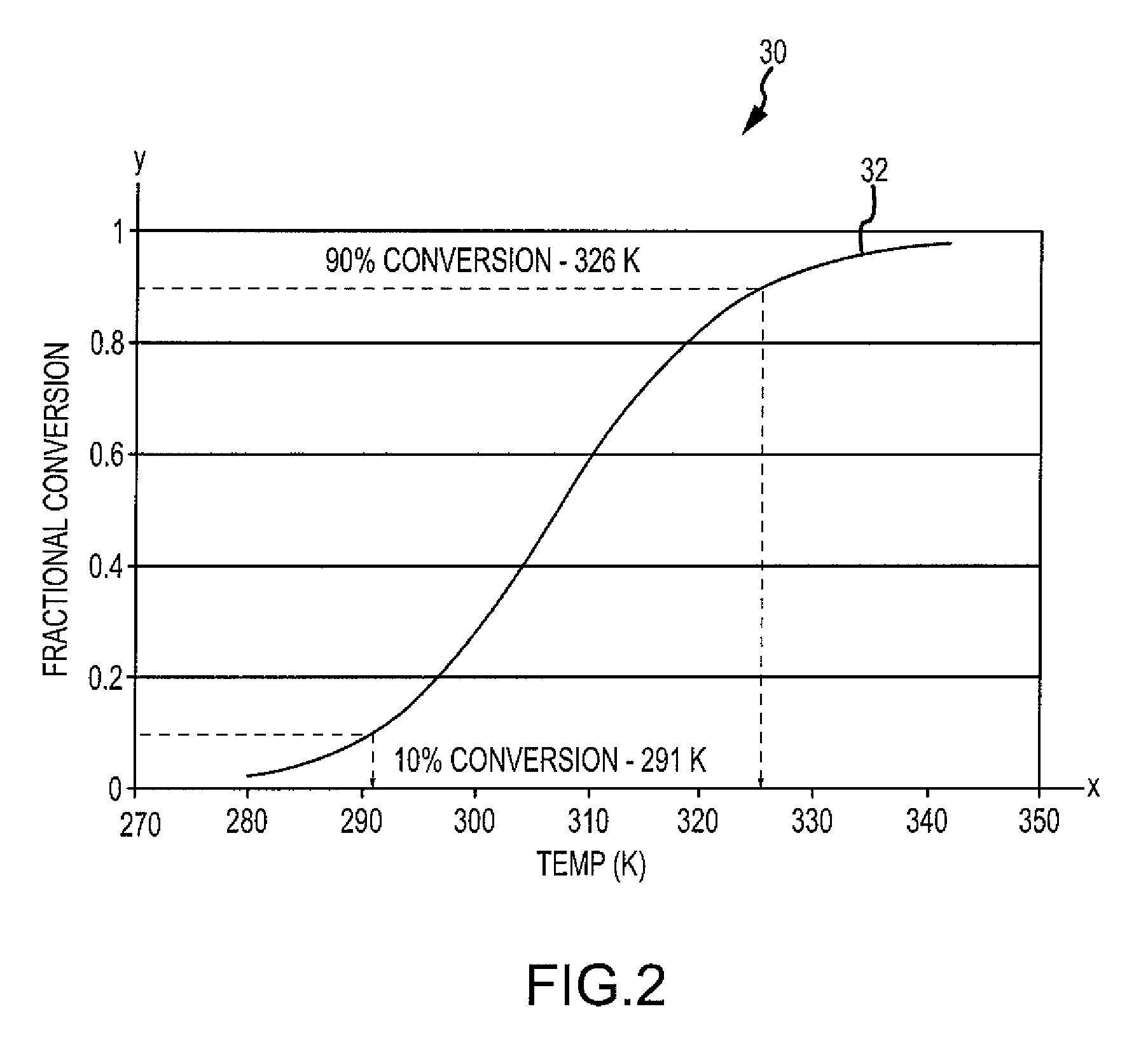Chemical reaction-based thermal management system and method
a technology of thermal management system and chemical reaction, applied in the direction of energy-efficient board measures, domestic cooling devices, cosmonautic thermal protection, etc., can solve the problems of limiting the operational envelope, affecting the efficiency of thermal management, so as to achieve low cost, high thermal capacity, and low weight cooling
- Summary
- Abstract
- Description
- Claims
- Application Information
AI Technical Summary
Benefits of technology
Problems solved by technology
Method used
Image
Examples
Embodiment Construction
[0022]Disclosed embodiments will now be described more fully hereinafter with reference to the accompanying drawings, in which some, but not all of the disclosed embodiments are shown. Indeed, several different embodiments may be provided and should not be construed as limited to the embodiments set forth herein. Rather, these embodiments are provided so that this disclosure will be thorough and complete and will fully convey the scope of the disclosure to those skilled in the art.
[0023]The disclosure provides for a chemical reaction-based thermal management system and method for using endothermic chemical reactions to absorb heat from a heat exchanger or heat source. The system and method of the disclosed embodiments may be used in aircraft, satellites, or other suitable vehicles and craft. Accordingly, one of ordinary skill in the art will recognize and appreciate that the system and method of the disclosure can be used in any number of applications involving a chemical reaction-b...
PUM
 Login to View More
Login to View More Abstract
Description
Claims
Application Information
 Login to View More
Login to View More - R&D
- Intellectual Property
- Life Sciences
- Materials
- Tech Scout
- Unparalleled Data Quality
- Higher Quality Content
- 60% Fewer Hallucinations
Browse by: Latest US Patents, China's latest patents, Technical Efficacy Thesaurus, Application Domain, Technology Topic, Popular Technical Reports.
© 2025 PatSnap. All rights reserved.Legal|Privacy policy|Modern Slavery Act Transparency Statement|Sitemap|About US| Contact US: help@patsnap.com



